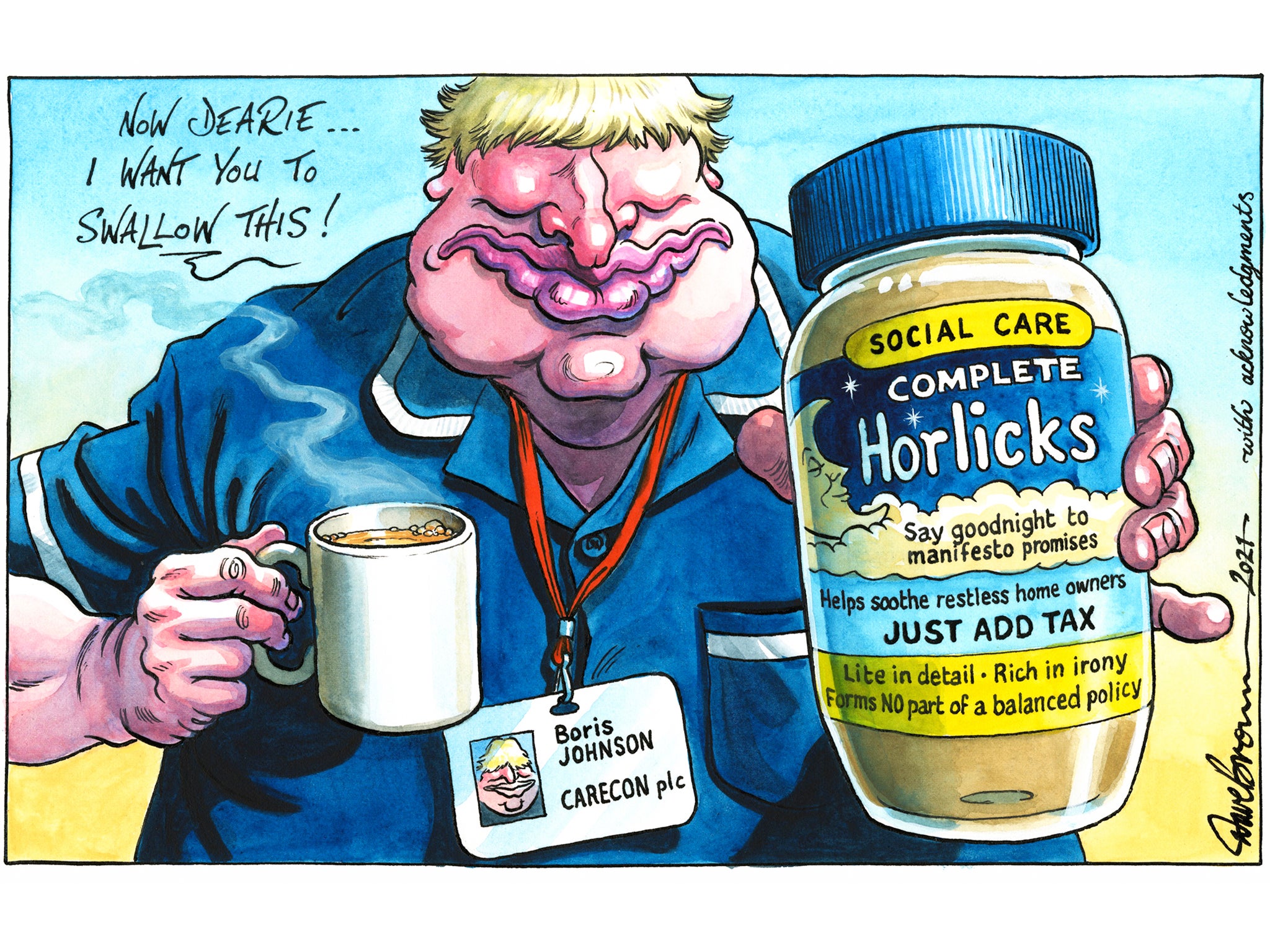Taxes, debt and public spending are all at – or near – post-war highs, for good reasons and bad, and we do not hear very much these days about “rolling back the frontiers of the state”.
Sajid Javid still insists on calling himself a “Thatcherite” but in Margaret Thatcher's eyes, Kenneth Clarke was, in his day in the 1990s, “a very good chancellor… a very good Labour chancellor”. We can only guess what she might make of the current cabinet’s evident enthusiasm for tax and spend, shredding manifesto pledges, chucking subsidies around and executing policy U-turns at a dizzying rate.
To borrow a catchphrase of the Iron Lady, Boris Johnson U-turns when he wants to. Older readers may recall a time when he was a tax-cutting, pro-EU, progressive sounding mayor of London. It is no mystery that there is no such thing as “Johnsonism”.
It is bewildering, especially for those remaining true believers on the right, to see a Conservative government act in this way. That’s because it isn’t a Conservative government, in reality. The key to understanding what is happening is to understand that Mr Johnson leads a populist government. Mr Johnson lives on phrase-making – “get Brexit done”, “levelling up”, “build back better” – and has little time to concern himself with ideological purity or consistency.
Where, then, does it leave British politics? A decade of increasingly centrist Conservative leaders have nudged their party towards the political centre, which is more to the left, in economic and social terms, than it was in the days of Mrs Thatcher and John Major. Mr Johnson helped alter the terrain again, but towards a form of populism that defies normal left-right definitions. It is hardly new, populism, but it is the kind of politics Mr Johnson excels at.
He has never seemed to enjoy himself more than during the mould-breaking experience of Brexit, and, since, in mischievously fomenting “culture wars” on trivialities such as a new royal yacht or public statues. Seen from the perspective of the present, it was his leadership of the Brexit Leave campaign that pushed politics off its usual orbit, tempted Labour voters towards the Johnson “brand”, thus realigning politics. We see now how the 2016 EU referendum greatly hastened the trend of disaffected “left behind” working class voters to move towards the Conservatives.
The centre of British politics, then, is a more diffuse, if not confused, affair than before and it has shrunk somewhat as politics has tended to polarise. The decisions the Johnson administration has had to take, including those it has been forced to reverse, are not judged by the public so much by the measure of manifesto pledges kept or broken, but rather on the merits of the case, and whether it works.
That is the main danger the Johnson government faces as it approaches its mid-term, the test of whether its policies are working and its ministers and leader are in fact competent and up to the job. So far, according to the polls, they have tended to give the government the benefit of the doubt as it grappled with the Covid-19 pandemic and the unintended consequences of Brexit.
But patience is wearing thinner, and the alibis are running out. As Keir Starmer reminded his own colleagues recently, the electorate, many of whom “lent” Mr Johnson their vote, are gradually more willing to at least give a hearing to Labour, (and the Liberal Democrats for that matter). The second half of this parliament, paradoxically, will be much tougher for the prime minister than his first two arduous years in office. Can Labour and the other opposition parties make the most of it?




Join our commenting forum
Join thought-provoking conversations, follow other Independent readers and see their replies
Comments